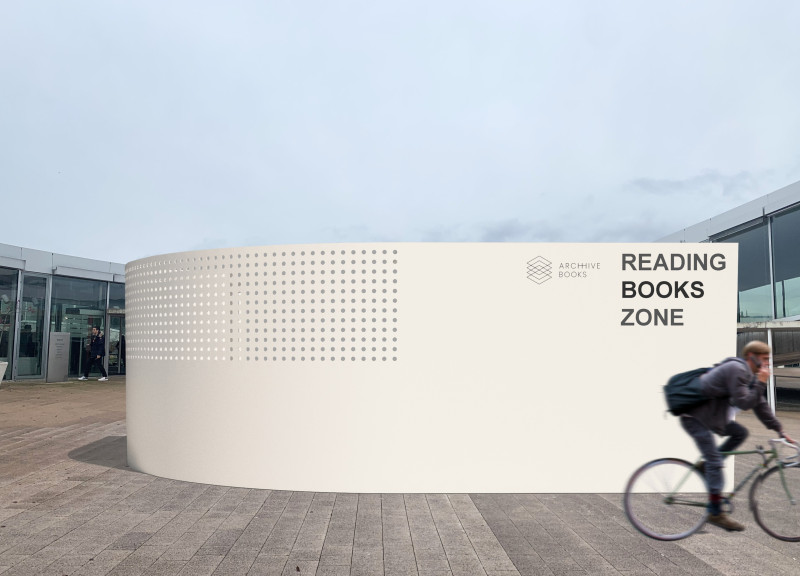5 key facts about this project
The EPFL Portable Reading Room is located at the Rolex Learning Center at École Polytechnique Fédérale de Lausanne (EPFL). It serves students by providing a space where they can read, exchange books, and park bicycles. The design concept focuses on modularity, creating a multifunctional area that supports both social interaction and quiet study.
Modular Design
The reading room consists of three modules, each with a specific purpose: bicycle parking, a book exchange area, and a reading zone. This arrangement optimizes the use of space and promotes engagement among users. The L-shaped layout allows for adaptability, enabling the combination of two prototypes to expand the reading area as needed. This flexibility enhances the overall usability of the room.
Materiality and Construction
Krion is the primary material chosen for this space. This solid surface is made up of two-thirds natural minerals and a small amount of high-resistance resins. It is non-porous and antibacterial, making it ideal for a busy educational environment. This choice of material ensures that the reading room will require low maintenance and possess a durable surface suitable for continuous use. The application of Krion throughout helps create a uniform appearance.
User-Centric Features
The design considers the needs of students, making access easy and promoting sustainable transportation options with the integrated bicycle parking. By placing the bicycle area close to reading and exchange spaces, the layout encourages interaction among students, fostering opportunities for collaboration. This thoughtful organization results in a lively environment that supports both individual focus and community interaction.
Combining different functions within the space addresses practical needs while highlighting the importance of flexibility in educational settings. Users can choose between quiet study or engaging with others. Clean lines and a consistent material enhance the reading room, creating an inviting atmosphere that encourages exploration and participation.





















































